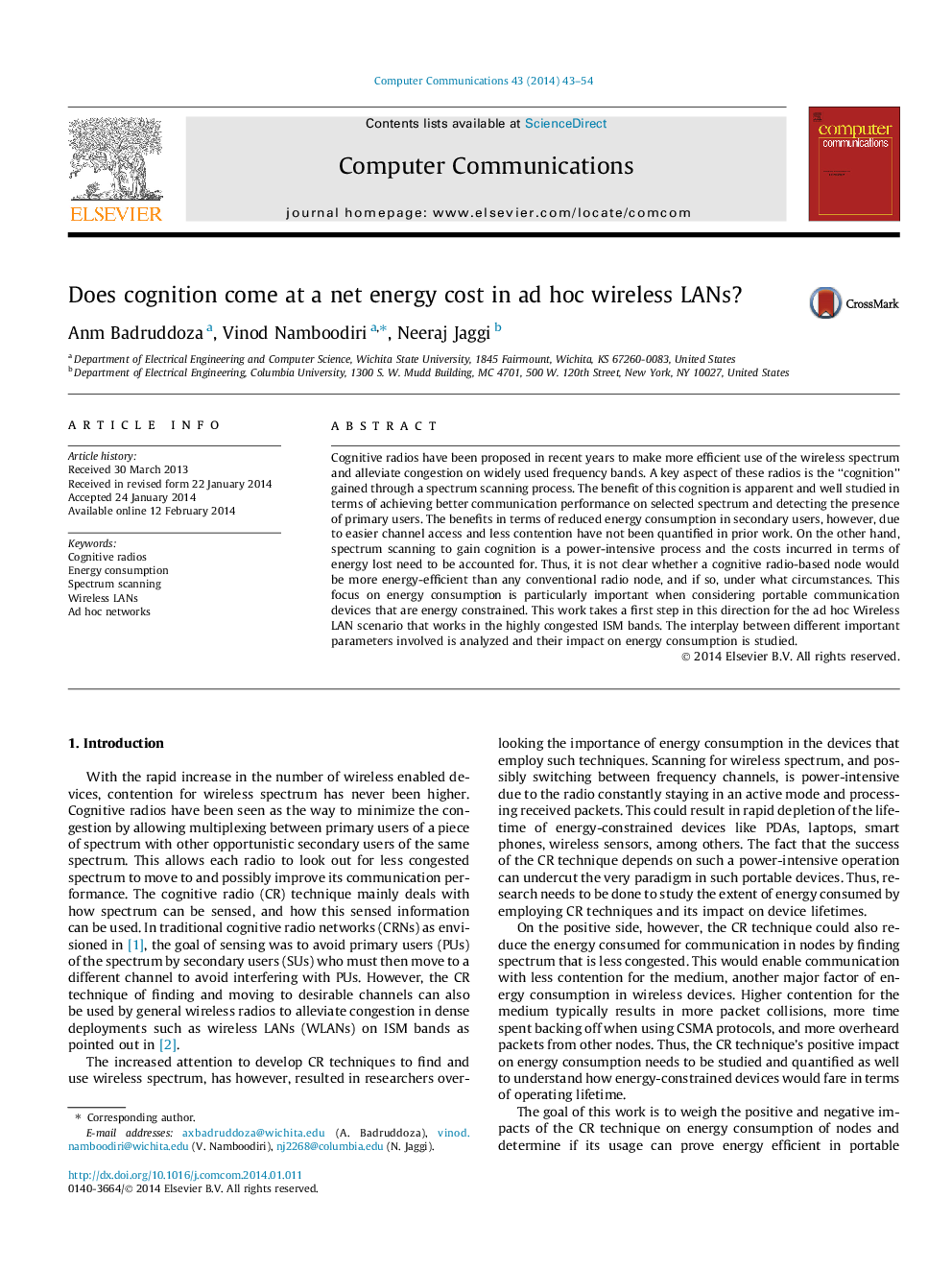| Article ID | Journal | Published Year | Pages | File Type |
|---|---|---|---|---|
| 448285 | Computer Communications | 2014 | 12 Pages |
Cognitive radios have been proposed in recent years to make more efficient use of the wireless spectrum and alleviate congestion on widely used frequency bands. A key aspect of these radios is the “cognition” gained through a spectrum scanning process. The benefit of this cognition is apparent and well studied in terms of achieving better communication performance on selected spectrum and detecting the presence of primary users. The benefits in terms of reduced energy consumption in secondary users, however, due to easier channel access and less contention have not been quantified in prior work. On the other hand, spectrum scanning to gain cognition is a power-intensive process and the costs incurred in terms of energy lost need to be accounted for. Thus, it is not clear whether a cognitive radio-based node would be more energy-efficient than any conventional radio node, and if so, under what circumstances. This focus on energy consumption is particularly important when considering portable communication devices that are energy constrained. This work takes a first step in this direction for the ad hoc Wireless LAN scenario that works in the highly congested ISM bands. The interplay between different important parameters involved is analyzed and their impact on energy consumption is studied.
